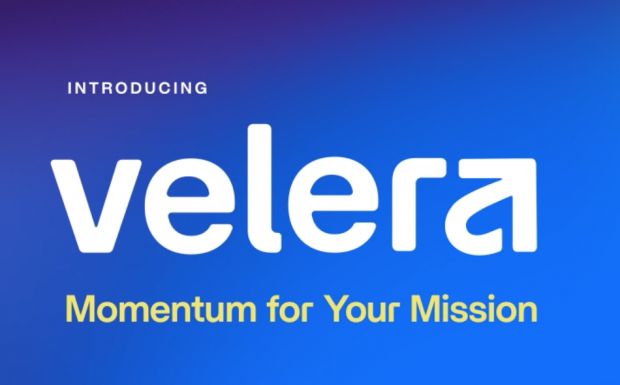Reducing deposit fraud cases is an important goal at any creditunion. At University Federal Credit Union, one incident in particulartriggered the need for a new solution that would allow it to take apreventative approach against this common form of fraud.
|The $1.6 billion, Austin, Texas-based credit union had placed aroutine hold on a large check deposit from an account holder, andwhen the hold was lifted, the account holder initiated a wire forthe same amount, explained Sandy Gaskamp, records managementmanager for University FCU.
|By the time the credit union learned the check would in fact bereturned, the account holder's wire had gone through, costing thecredit union the amount of the check, Gaskamp said.
|Catalyst Corporate Federal Credit Union in Plano, Texas,provides payment services for University FCU. Through thatrelationship, the credit union implemented the DEPOSIT CHEK service from fraud prevention and risk managementservices vendor Early Warning, a partner of Catalyst's since 2009, Gaskampsaid.
|With DEPOSIT CHEK, University FCU began receiving two dailyreports detailing the return likelihood of checks deposited the daybefore, which gave the credit union a window of opportunity towithhold the funds tied to high-risk deposits before it was toolate.
|Gaskamp said each check deposited at University FCU is sent toCatalyst, which runs it through the DEPOSIT CHEK service, where areview of the check's corresponding account status and accountowner authenticity is completed.
|“It's extremely helpful,” Gaskamp said. “Every day we see hardhits on our reports, and now we can put a hold on those accounts sowe won't experience those losses. In one instance, we would havelost $2,700, but since we had DEPOSIT CHEK, we were able to catchit.”
|Because of Regulation CC, which requires financial institutionsto make certain deposit amounts available within specific timeperiods, the credit union still takes some small hits incheck-related fraud cases. Still, its overall gains from theincrease in early detection have been significant, Gaskamp pointedout.
|University FCU hasn't tracked exact loss reduction numbers sinceimplementing DEPOSIT CHEK, but the service has helped preventdeposit fraud that can stem from several different scenarios, thecredit union said.
|For example, if someone opens a new University FCU account andrequests an instant issue debit card, he or she may deposit a badcheck into the account. In that case, DEPOSIT CHEK will quicklyalert the credit union of any warnings about the account associatedwith the check, giving it time to cancel the person's debit cardbefore he or she attempts to use it, Gaskamp said.
|Returned deposits are the culprit of a significant chunk ofcheck-related losses at financial institutions. Citing the AmericanBankers Association, Early Warning Financial Services ChannelManager Xan Kasprzak said 30% of all industry check-related lossesstem from returned deposits.
|The DEPOSIT CHEK service pinpoints warning signs after runningan account through a national shared database that covers 95% ofall checking and savings accounts in the U.S., Kasprzak said. Itthen categorizes the warning signs, which may include an accountclosure, multiple overdrafts, a possible forgery or a possiblecounterfeit, into hard and soft hits and presents them to thecredit union. This gives its managers the chance to place a hold onthe deposit or begin conducting an investigation.
|“Our credit unions have said that the warnings give them asafety net by allowing them to place an extended hold on thedeposit,” Kasprzak said. “They've said it gives them a heads up andhelps them see that a scenario could turn out to be check kiting.Every credit union has the potential to prevent many losses eachmonth, because they're finding all the needles in thehaystack.”
|Kasprzak said the service also translates to a lighter workloadfor credit unions' collections and fraud staff members. Todemonstrate just how much a credit union can save with DEPOSITCHEK, she added, one client suffered an additional $18,000 incheck-related losses during a four-month period without theservice.
|As a result of a partnership between Early Warning and fraudprevention technology vendor Advanced Fraud Solutions, all DEPOSITCHEK users are on a new, Web-based version of the service as ofDec. 31, 2012, which Kasprzak and Gaskamp said has sped up thedeposit fraud detection process and created more workplaceefficiencies.
|Gaskamp said at University FCU, the upgrade means that insteadof scanning checks in a back room and receiving reports via ananalog hardware reader in the records management department, eachteller workstation has its own check scanner and access to DEPOSITCHEK reports online.
|“We've brought it to the front line and provided a Web servicethat's instantaneous,” Kasprzak said. “It allows tellers to scanchecks, key in data and receive a response while they're sitting atthe window. Until we're able to clear checks in real time, this isone of the best tools we have in our arsenal to preventlosses.”
Complete your profile to continue reading and get FREE access to CUTimes.com, part of your ALM digital membership.
Your access to unlimited CUTimes.com content isn’t changing.
Once you are an ALM digital member, you’ll receive:
- Critical CUTimes.com information including comprehensive product and service provider listings via the Marketplace Directory, CU Careers, resources from industry leaders, webcasts, and breaking news, analysis and more with our informative Newsletters.
- Exclusive discounts on ALM and CU Times events.
- Access to other award-winning ALM websites including Law.com and GlobeSt.com.
Already have an account? Sign In
© 2024 ALM Global, LLC, All Rights Reserved. Request academic re-use from www.copyright.com. All other uses, submit a request to [email protected]. For more information visit Asset & Logo Licensing.









